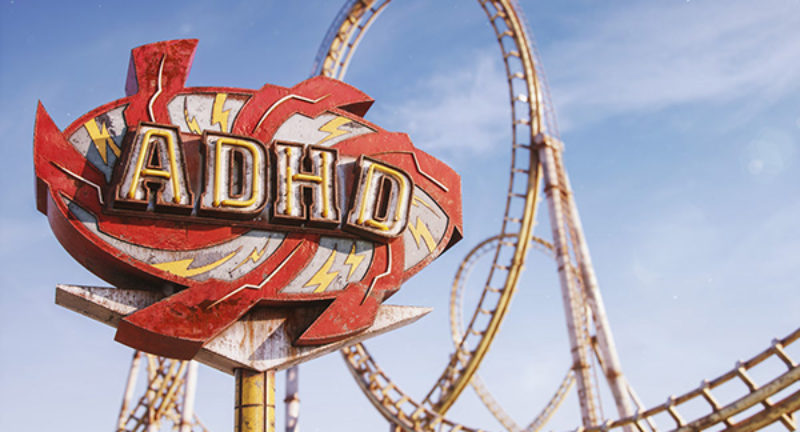
ADHD Myth Series: Is It Okay to Stop Taking ADHD Medications on School Breaks?
With summer drawing closer and closer, many parents of children with ADHD start to wonder if they should pause their child’s ADHD medication during the school break, but is this a good practice for children with ADHD? We’ve interviewed Dr. Brian Briscoe to help us de-bunk this myth.
What’s a Medication Holiday?
A medication holiday is a “deliberate interruption of pharmacotherapy for a defined period and for a specific clinical purpose,” according to a study published in the Journal of Psychosocial Nursing and Mental Health Services. Sometimes medication holidays are used to assess the efficiency of a certain type of medicine.
However, there are many myths surrounding ADHD, including that it’s okay to take a medication holiday from ADHD medication on weekends, school breaks, and summer vacations. This can be problematic for a few reasons.
Consequences of a Medication Holiday
Stopping any type of prescribed medication suddenly can cause problems. Research shows that medication holidays can increase the risk of “destabilizing patients, difficulty in distinguishing [between] rebound and discontinuation effects, and increasing the risk of poor medication adherence.”
In addition, children may need their medication for more than just improving school performance.
ADHD Affects All Aspects of Life
ADHD affects all aspects of life — not just school or work performance. This means that your child’s ADHD medication affects more than just his or her performance in school.
ADHD can affect your child’s:
- Home life
- Relationships
- Ability to manage emotions and impulsivity
In other words, to stop ADHD medication over a school break can impact your child’s ability to successfully navigate through his or her life. For example, he or she may start to struggle with projects and daily tasks at home.
Dr. Briscoe highlights how quickly stopping the medication can compound problems: “When things pile up at home — incomplete projects, dishes, laundry, etc. — it can create problems on the home front, as well as anxiety for the person who suffers from ADHD.” This is true for both adults and children. Children might feel overwhelmed by incomplete chores, etc.
This means that a sudden break from medication can extend far beyond school or work performance.
The Effect of Medication Holidays on Relationships
Remember that ADHD affects relationships, and that’s true for children, too. ADHD can affect the ability of children to engage in — and stay focused on — conversations. Some children with ADHD can struggle to manage intense emotions, and some may struggle with tendencies to act before thinking, to act on impulse. (Keep in mind that impulsivity is one of the categories of symptoms of ADHD.)
Medication can help reduce the severity of symptoms in your child, and when symptoms are managed, it’s easier for your child to engage in relationships.
ADHD Medication & Behavior
ADHD medication can help your child manage his or her behavior whether school is in session or not.
According to Dr. Briscoe:
Children with ADHD experience difficulty regulating their behavior just as much at home as they do at school. As children’s behavior (i.e., hyperactivity, impulsivity, difficulty regulating attention, follow through, etc.) wears on parents and other caregivers, caregivers can begin to show signs of impatience, and sometimes speak in ways that may be a bit discouraging to a child.”
As parents become frustrated, the child can then “internalize these messages (‘I can’t get anything right’, ‘I’m lazy,’ ‘I’m stupid,’ ‘I’m a bad kid’), which can have negative impacts on their self-esteem and overall mental health on a long-term basis.”
The Takeaway
ADHD medication can help a child in all aspects of his life, including:
- Home life
- Relationships with family members and peers
- Regulating behavior
- Managing emotions
To take a break from medication solely because a child is out of school can cause repercussions in other areas of your child’s life. If you do have concerns about your child’s medications, including side effects or dosage questions, it’s important to speak to your child’s provider. Never stop a prescribed medication or adjust dosage unless directed to do so by a mental health professional. That’s because suddenly stopping certain medications can cause withdrawal symptoms, even if you take your medication as directed.
Other ADHD Myths
Unfortunately, this isn’t the only myth about ADHD, but we’re committed to sharing the truth about ADHD. You can read more about the myth about outgrowing ADHD here.
Your Next Steps
Medications can help significantly in all the areas we discussed, but it’s essential to remember that skills-building (i.e., learning strategies and tactics to cope with ADHD) and effective parenting techniques are equally important. At Next Step 4 ADHD, we are all about comprehensive holistic care so that your child can not only survive, but thrive with ADHD.
Trying to deal with your child’s ADHD on your own can be difficult, but with our innovative approach, you’re never alone. We are here to guide you with your next steps. If you’d like to learn more about us or set up a confidential discussion with one of our professionals, you can complete this form for a virtual appointment. Alternatively, call our Louisville, Kentucky office at (502) 907-5908.
Related Posts
What to Do When Your Spouse Has ADHD
Untreated ADHD can impact adults in many ways — from disorganization at work to...
How to Manage a Hyperactive Child at an Amusement Park
Taking a hyperactive child to amusement park or on a Disney vacation can be a...


